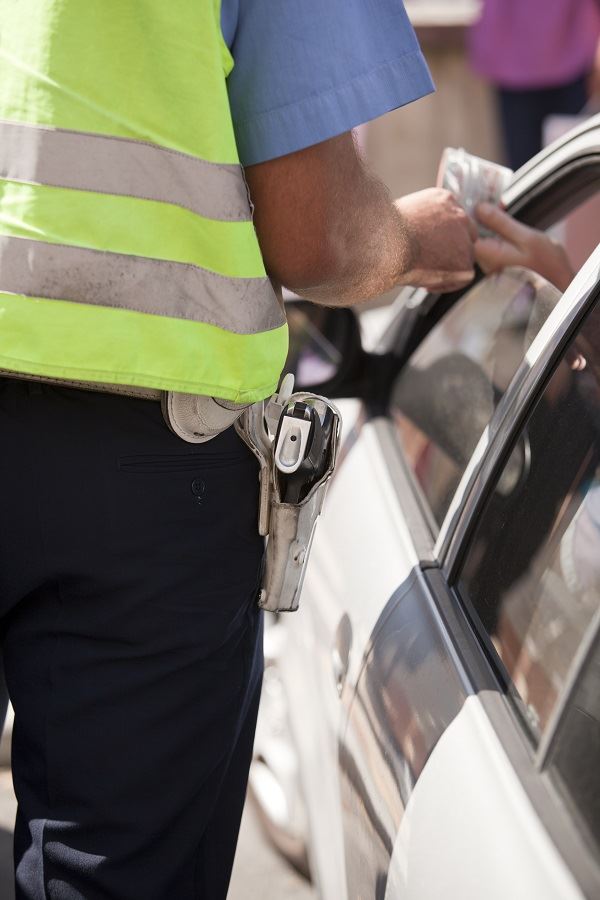
California traffic tickets are some of the highest in the country. A red-light traffic ticket is the highest nationwide; almost $500 after the state and county officials add their ten surcharges, fees, and assessments to the $100 fine. What’s more, if you do not pay within the given timeframe, the county court can add a $300 civil assessment for Failure to Appear or Failure to Pay (FTA/FTP). At $10 an hour, that’s two week’s wages before taxes. These fines and penalties can pile up quickly.
The Sacramento Bee disclosed, in an article written by Christopher Cadelago on 15 April 2015 titled, “Small traffic fines can lead to big problems for some Californians” that more than 4 and ½ million CA residents had their license suspended between 2006 and 2015. Less than 82,000 had it reinstated according to Cadelago.
Help for Some with Past Due California Traffic Tickets
Of course, that was before the 18 months “amnesty” program started in October 2015. At that time, the DMV reported that 612,000 residents had a suspended driver’s license (DL). During the amnesty timeframe, that number dropped by 124,000 drivers to 488,000. Overall, 192,000 drivers were able to get their DL reinstated. That means another 68,000 had their DL suspended during the period. Yet nearly a half million people are still without a DL to get back and forth to work, provide for their families, and pay their fines. And, the State of California is still owed nearly $10 billion in traffic tickets, late penalties, and civil assessments.
How We Got There
Much like a doctor giving a flu shot to a patient with the flu, the State of California is applying a band-aid to arterial bleeding. The state has not reduced or eliminated any of the ten added assessments. Many drivers had their DL suspended, had their family vehicle impounded and sold, lost their jobs, and have no way to pay. This is what California traffic tickets look like as a base fine and after the added fees:

Increased Insurance Premiums Worse than the Fine
As bad as the fine is for California traffic tickets, the fine is likely only one-fourth of the cost of a second ticket within an 18-month period or a major infraction, misdemeanor, or felony conviction. With most minor infractions, traffic school can make your conviction confidential and out of the sight of your insurance company. However, traffic school can only be used once within 18 months. It cannot be used at all for a major infraction, misdemeanor, felony conviction, or while driving a commercial vehicle.
The average Californian pays $1960 annually for auto insurance. When your policy comes up for renewal and you have a traffic ticket, you will lose your 20 percent “good driver’s discount.” And, depending on the offense, your premium will go up commensurate with the risk. Even a second conviction for a minor infraction could cost you $500 more per year in premiums for the three years it will stay on your driving record, or around $1500 on top of your fine.
So, before you pay that fine, consult with a traffic ticket attorney.
Ask a Traffic Attorney that regularly practices in Kings County
Bigger & Harman provide legal representation for drivers who need help with California traffic tickets. Paul and Mark spend countless hours in traffic courts in Central Valley, many of those hours in Hanford Traffic Court. Call Bigger & Harman, (661) 349-9300, when you have a traffic ticket and need legal advice.
Or, send an email, attorney@biggerharmanlaw.com, or private message on Facebook. They will send a reply as soon as the office opens or they return from court. Also, you can view client feedback and reviews on Avvo, Nolo, or Yelp. Nolo and Avvo are major national websites that help people find attorneys.
Se habla Español 661.349.9755.
References
The 2018 California Superior Court Bail Schedule for Infractions and Misdemeanors .pdf
The Sacramento Bee article, “Small traffic fines can lead to big problems for some Californians” dated 15 April 2015
The
Reveal News online article, “End of the road for California’s traffic
amnesty program” by Harriet Rowan, dated 7 April 2017
The DMV homepage
